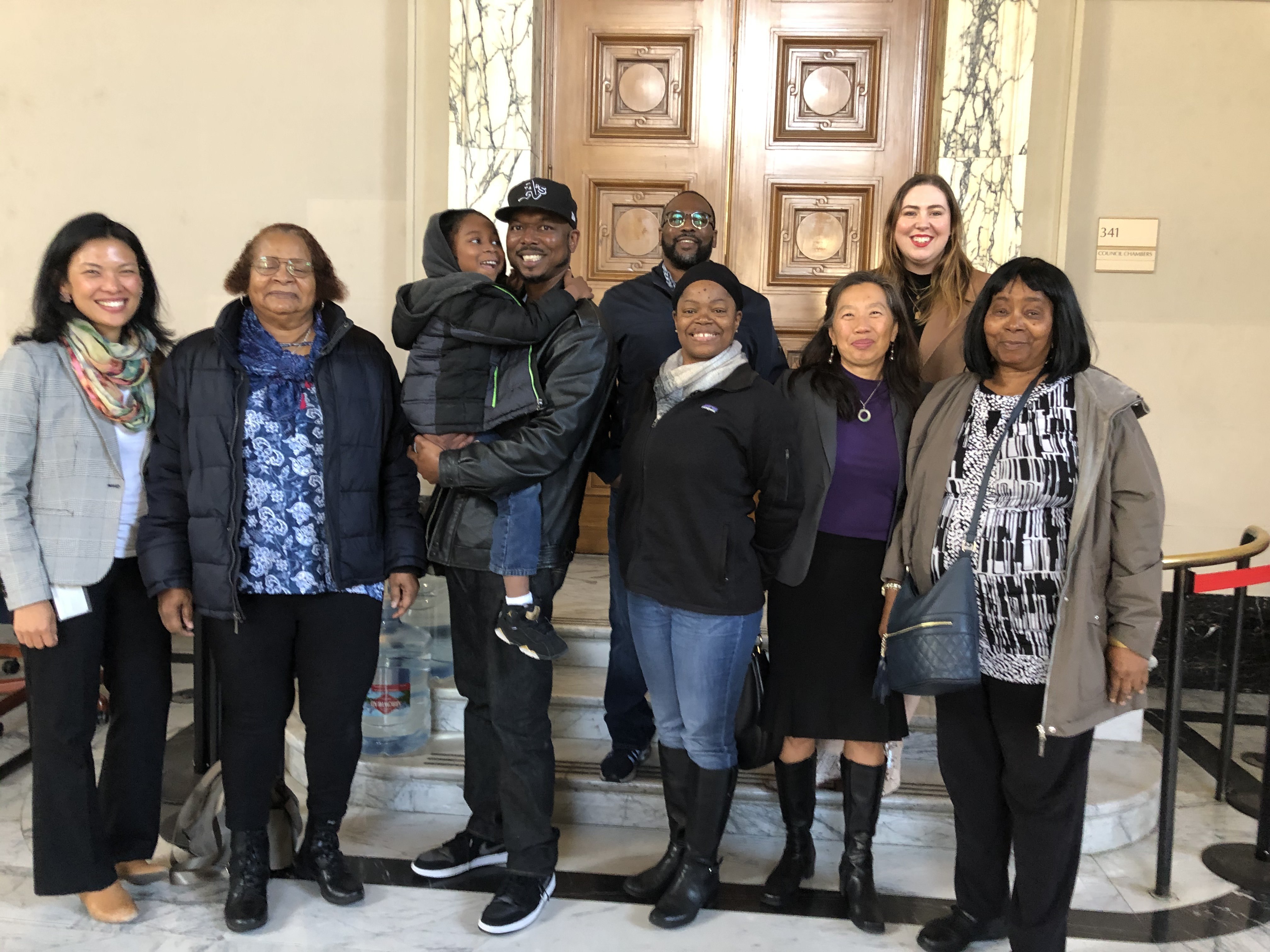FROM THE OFFICE OF DISTRICT 2 Councilmember Nikki Fortunato Bas:
In February 2020, Council passed Oakland's Fair Chance Housing ordinance, which removes barriers to housing for community members returning from the criminal justice system, making it possible for them to live with family members and access all forms of housing like everyone else needs and deserves.
73% of our homeless encampment residents are formerly incarcerated. Read my op-ed with brother in the movement and coalition leader John Jones III in the San Francisco Chronicle or below on why this legislation is critical to lowering barriers to housing, reducing homelessness and recidivism.
Thank you to Alameda County Fair Chance Housing Coalition, advocates, my colleagues at City Hall. This win is a strong example of democratic participatory policy making where formerly incarcerated residents and their families identified both the policy problems and solutions as well as best practices.
-----
Though you’ve secured employment to provide for yourself and loved ones: No.
Though you’ve served your time and met all parole conditions: No.
Though you’ve reconnected with family members, and they welcome you in their homes: No.
Though you’ve reunited with your partner and both desire to cohabitate: No.
Though you’ve worked hard on your mental and physical health, seeking to thrive, not just survive: No.
No, you cannot live here. No, due solely to your record — often because of an action from decades ago — you are banned from all forms of rental housing, from private units to publicly subsidized housing to nonprofit housing.
What options remain? A vehicle, if you’re lucky enough to have one, or the streets, both of which can lead to encounters with law enforcement and potential re-criminalization.
It’s no coincidence that 73% of Oakland’s homeless encampment residents are formerly incarcerated, and that homelessness has increased by 47% in the past two years. Meanwhile, efforts to reduce statewide prison overcrowding along with progressive court decisions to address mass incarceration are bringing more people home than ever before.
It’s the trauma — of being told “no” over and over again, while living fearful of being reported by neighbors or seen by property management — that thousands in our community face while fighting to meet a need so fundamental to survival: having a roof over your head.
It’s a failure of our systems and decision-makers to ensure every individual can successfully reintegrate, heal and move forward. Rather than expanding the economic pie, the lack of legal housing options contributes to an underground economy where crime can fester.
That’s why last week, City Council unanimously passed Oakland’s Ronald V. Dellums and Simbarashe Sherry Fair Chance Housing Ordinance. This legislation is the first in California — joining cities nationwide like Seattle and Portland — to ensure that people returning home from the criminal justice system can legally live with family members and access, on their own, nearly all other forms of previously off-limits rental housing.
In our current affordable housing and homelessness crisis, the overwhelming majority of Oaklanders agree: Housing and homelessness are residents’ number one concern, outstripping any other priority by a wide margin. If we truly believe housing is a human right, we cannot permanently punish individuals who have paid their debts to society by structurally denying them access to every single form of housing. Our country’s legacies of government-sanctioned, de facto residential segregation and housing discrimination — disproportionately impacting African Americans, the same group most experiencing homelessness and incarceration today — make an ordinance like this absolutely necessary to the realization of justice.
We want to note three important details: (1) The ordinance does not apply to individuals with sex-related or meth manufacturing offenses. (2) It fully preserves landlord discretion to require employment, income, reference and past addresses, and other necessary information. (3) With respect for landlords who cohabitate with tenants, it does not apply to owner-occupied properties (including duplexes and triplexes), accessory dwelling units and tenant-occupied units seeking a roommate. To reiterate, this ordinance does not require any landlord to rent to an individual — it only encourages them to give these folks a second look.
Too many of our formerly incarcerated community members, Oakland born and raised, have spent years struggling to find stable housing. They’ve bounced from family members’ couches to friends’ living rooms to vehicles to the streets, unable to stay in any location for long before being forced to leave.
In addition, it is widely known that criminal background check databases are often flawed and inaccurate. The lack of up-to-date data on case outcomes means that arrests are routinely listed in background reports even when the charges were dropped, reduced or disproven in Court.
By lowering barriers to housing, this ordinance will directly reduce the increasing rate of unhoused individuals in our city, as well as reduce recidivism.
Thank you to all of the community members — formerly incarcerated individuals and their families — who partnered with organizers, elected officials and allies tirelessly over many years to achieve this long overdue win. We share our gratitude to City Attorney Barbara Parker, Vice Mayor Larry Reid and Councilmember Dan Kalb for co-sponsoring the ordinance.
This legislation is a powerful example of democratic, participatory policy-making where the most impacted residents identified both the policy problems and best practices, and partnered with a diverse range of stakeholders — including but not limited to property owner associations and landlords, as well as incorporating feedback from tenants and other community members and organizations — to tailor solutions to a local context.
Together, we can ensure that our laws are continually revised to become more humane and just. We can transform and heal our communities, centering those most impacted by past injustice, providing housing for all and co-governing with compassion, love and community by our side.
John Jones III is campaign director of Alameda County Fair Chance Housing Coalition; Nikki Fortunato Bas is Oakland District 2’s City Councilmember. The authors have previously worked together on fair chance employment.
